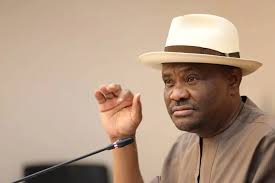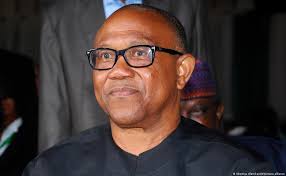
The political drama within Nigeria’s opposition ranks took another dramatic turn recently when Federal Capital Territory (FCT) Minister Nyesom Wike warned the People’s Democratic Party (PDP) against bringing back Peter Obi, claiming it could lead to the party’s “self-destruction.” Wike’s statement has stirred debate across the political spectrum. But is Wike genuinely defending the PDP’s ideological integrity, or is he driven by a fear of losing his political relevance to a rising star?
The Unusual Political Position of Nyesom Wike
Nyesom Wike’s current position is unique: a PDP stalwart serving as a minister under an All Progressives Congress (APC)-led federal government. This rare arrangement already places him in a complicated political spot, leading many to question where his true loyalties lie.
Wike remains a PDP member on paper but functions politically within an APC government, which critics argue undermines his credibility as a party loyalist. This duality is crucial to understanding the motivation behind his strong opposition to Peter Obi’s potential return to the PDP.
The Case for Wike’s Warning
On the surface, Wike’s concerns about Peter Obi’s return hold some merit. Obi’s departure from the PDP was accompanied by harsh criticisms of the party, including branding it “rotten.” His exit and subsequent presidential run under the Labour Party in 2023 arguably split the opposition vote, contributing to the PDP’s defeat.
From a party unity perspective, welcoming back a figure who publicly denounced the PDP risks sending mixed signals to supporters and could undermine the party’s message. Wike’s argument stresses that re-admitting Obi without clear reconciliation might damage the party’s credibility and alienate long-time loyalists.
The Political Threat Obi Represents to Wike
However, it is impossible to ignore the political rivalry that underpins Wike’s warning. Peter Obi remains an immensely popular figure among Nigerian youth and progressive voters, especially in the Southeast and South-South regions—areas critical to the PDP’s electoral fortunes.
Obi’s reformist image and growing grassroots support pose a direct challenge to Wike’s influence within the party. By opposing Obi’s return, Wike may be trying to safeguard his own political base and maintain his standing as a dominant power broker in the PDP’s southern bloc.
A Balancing Act Between Principle and Political Survival
The reality likely lies somewhere between ideological concern and political self-preservation. Wike’s warnings do reflect genuine worries about party coherence and messaging, yet his political calculations are equally apparent.
His alignment with the APC federal government weakens his moral authority to criticize Obi, who is viewed by many as a symbol of authentic opposition and change. The rivalry between the two men now embodies a broader struggle within Nigerian opposition politics—between old guard loyalty and new political energy.
Fear, Truth, and Nigeria’s Opposition Future
Wike’s caution about Peter Obi’s return to the PDP is both a cautionary message and a political maneuver. While there are valid reasons to ensure party unity and ideological clarity, his opposition also stems from a fear of losing influence to a charismatic and popular figure.
For the PDP to survive and remain a credible opposition force, it must reconcile these internal conflicts honestly. Bringing Obi back may be challenging, but outright rejection risks alienating a significant voter base hungry for change.
Ultimately, the PDP’s future will be shaped by how it navigates these tensions—balancing political realities with the principles that once made it Nigeria’s dominant party.




